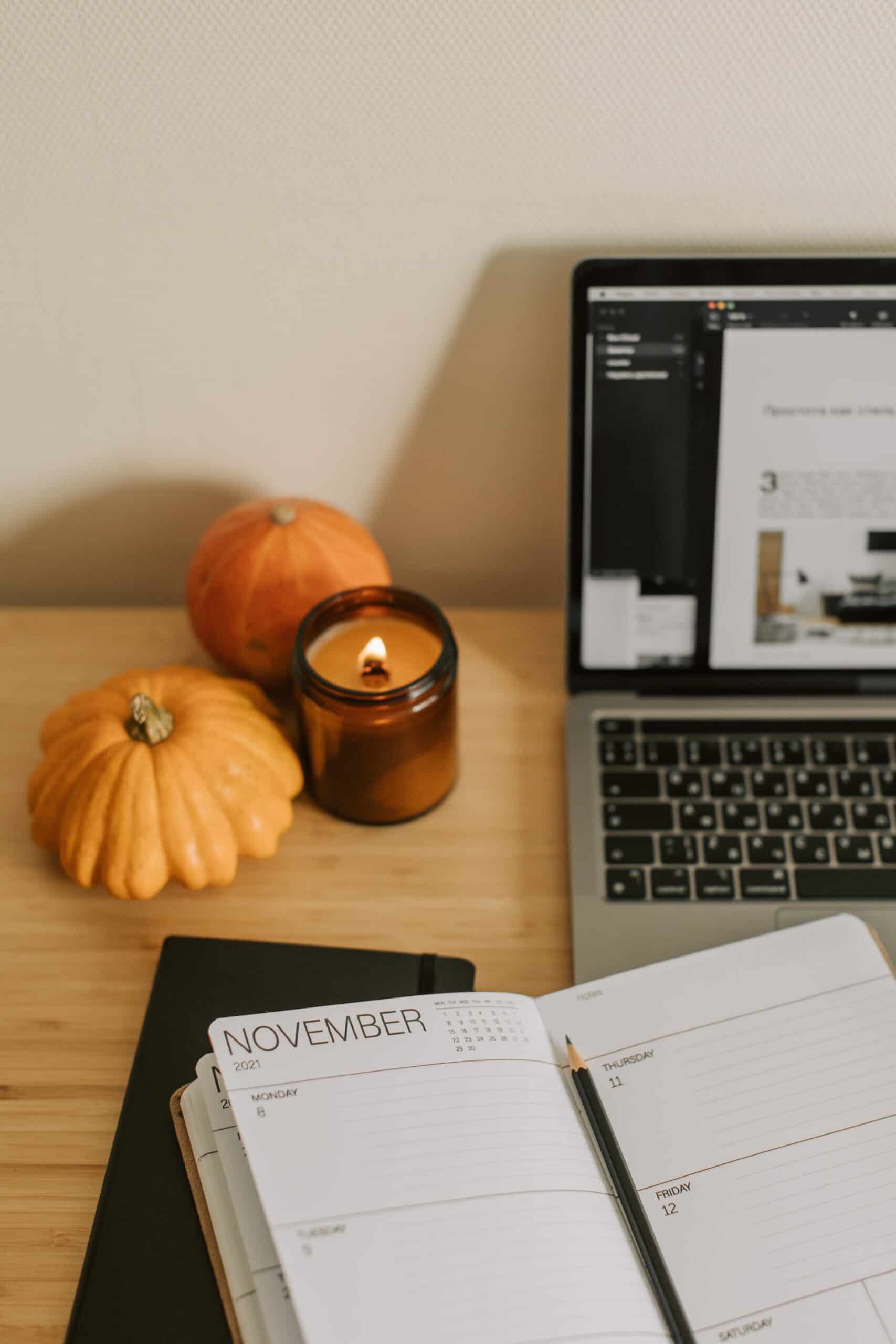As a card-carrying member of the depression club for over two decades, I am well aware of what a depression spiral looks like.
I hate to admit it, but I’ve gone days, sometimes weeks, without brushing my teeth, eating real food, or even getting out of bed.
It’s not because I didn’t want to.
Sometimes I wanted to feel better. I just couldn’t move. And I had no idea how to function with depression.
It’s like my brain pulled the emergency brake, and nothing could get me moving.
That doesn’t mean that I didn’t have flickers of motivation or interest in getting myself together, but it would quickly pass, and I would be stuck in bed rotting or continuing my self-neglect.
Depression hijacks your energy, your will, and your sense of direction. And for me, part of staying stuck was not knowing where to even begin.
I’m not a mental health professional. Just a real-life woman with real-life depression who has found ways to work through it.
This guide is here to make sure that you don’t have the same problem I did.
If you’re looking for guidance on how to cope when you just can’t, in compassionate and realistic ways, keep reading.
How to Function with Depression: 6 Gentle Ways to Get Through the Day
Don’t Beat Yourself Up
One of the worst parts of depression is how negative it makes you feel in every area of your life.
When you’re in the midst of a depressive episode, it’s not uncommon to think the absolute worst about absolutely every. single. thing.
If you can catch even one negative thought and gently say, “Maybe that’s not the whole truth,” that’s a win.
You don’t have to force yourself to grin as big as a character from “Smile.” Even softening your inner critic from “I’m worthless” to “I’m having a hard day” is a powerful shift.
Try not to beat yourself up for how you’re feeling (or have felt). Instead, accept your current situation and mindset for what it is without judgment or blame.
The goal is to stop negativity in its tracks and prevent the spiral from continuing.
Positive thinking may be out of reach right now, but even neutral thinking can be an improvement.
Start Small with Hygiene
I don’t know about you, but when I’m having a depressive episode, hygiene is remarkably difficult to manage.
Lying in bed all day, neglecting everything, including mundane hygiene tasks, eating, and other bare minimum self-care, is common (and understandable) when you’re depressed.
However, if you’re wondering how to function with depression and get your hygiene back on track, it can be monumentally helpful to take even the smallest baby step towards caring for your body.
Even basic things, like brushing your teeth or splashing water on your face, can feel impossible.
Pick just one: brush your teeth, splash water on your face, change your underwear. That’s enough.
That single act can feel like climbing a mountain and actually reaching the top.
Sometimes it opens the door to the next small step. Sometimes it doesn’t. Both are okay.
Do Something You Usually Enjoy
If you’re currently feeling the weight of depression, there may be nothing that makes you smile or brings you enjoyment at the moment.
It may also seem pointless to even try to watch your favorite TV show or read your favorite book when you’re feeling your worst.
Here’s the strange part: sometimes you won’t want to press play on your comfort show or open that book.
But if you do it anyway, even just for five minutes, you might feel something shift.
Not joy, maybe, but familiarity. Safety. A soft return to yourself.
Give it five minutes, even if you’re skeptical.
You might feel nothing. Or you might catch a flicker of ease. That’s enough.
Socialize – If You’re Up To It
When you’re having a depressive episode, have you noticed that you rarely, if ever, find yourself communicating with others?
If the answer to that question is yes, know that it’s common to behave this way.
Talking might feel impossible or annoying. But a single text, meme, or call can shake you out of isolation, even for a moment.
Studies (by really smart people) show that even brief social contact can boost mood because connection regulates the nervous system.
There’s something about talking to others that can get you out of your head, serve as a temporary distraction, and possibly help you work through some of your problems.
One great thing is that who you choose to reach out to is completely up to you.
It could be a family member, a friend, or, better yet, a professional like a counselor or therapist.
It doesn’t have to be deep. You can send a meme. You can say, “Hey, I feel awful and don’t know what to say.”
The point isn’t what you say. It’s that you reminded your nervous system: I’m not alone in this.
The overarching goal is to talk to someone and not keep all your emotions pent up inside.
Express Your Feelings
Have you noticed that you often feel noticeably worse when you keep things bottled up and stuffed down?
Whether you allow yourself to have a good cry or write out your feelings in a journal, it can be immensely cathartic to let your feelings out.
That’s why expressing your feelings is a hugely important way to handle being in a depressive state.
Getting your feelings out can feel like unzipping something tight around your chest and can leave you feeling a lot lighter and more unburdened.
The method you use to flush out your feelings is entirely up to you, but the goal is to painlessly get as much out of your system as possible.
Let your body or your voice carry what your mind can’t hold.
Write one unfiltered sentence. Cry into a pillow. Scream in your car.
Let it move through you, however it needs to.
Set Yourself Up for Next Time
Once you emerge from your depressive episode – and you will emerge even if it doesn’t feel like it right now – how do you want to feel in the future?
When you feel paralyzed by depression, it may be difficult for you to know what would help at the moment.
This is why making a plan for the future can be an excellent way to prepare ahead of time.
If you need help figuring out how to create a future plan, you can use the depression coping tips in this article as a start.
You won’t always feel this way. When the fog lifts, because it will, you can help your future self through the next wave.
Not with a perfect plan. Just a soft place to land.
Here’s how to build it:
- Think about the actions you will take, like showering and eating easy-to-prepare (or premade) meals.
- Consider whom you can contact to socialize and keep communication open, like close friends and family members.
- Keep a go-to kit featuring things that you enjoy, like your favorite books or movies.
- Make it easy for yourself to get your feelings out; use a journal or artistic means.
The Takeaway: A Gentle Reminder You’re Not Alone
When everything feels heavy, it can be extremely rough, and it can be difficult to know how to function with depression.
When you’re not prepared, it can feel isolating, exhausting, and demoralizing to go through these feelings.
Small steps aren’t a cure; they can help you feel less lost.
You don’t have to white-knuckle your way through this. Small changes can create real relief.
With the help of these small but impactful strategies, you can make dealing with depression more manageable and soften the blow when it returns.
That said, if you’re dealing with depression, I recommend that you reach out to a health professional, like a therapist or doctor. I’ve done this many times over the years, and these resources are there to help you work through your feelings and provide you with much-needed relief.
You deserve to feel better. And even though it might not feel like it now, things can get better with small steps, the right support, and patience with yourself.

Here’s how to function with depression (when you just can’t).
Real-Life
Work in Progress.
Founder. Writer.
Roxy is the creator of The Everyday Flourish, a relatable personal growth blog for women who are tired of burnout, chaos, and hustle culture.
A recovering overthinker and unofficial life guinea pig, she shares honest self-care strategies, ADHD-friendly productivity tips, and mindset shifts that actually feel doable.
Around here, personal growth comes with grace, not pressure - and a lot fewer to-do lists.








